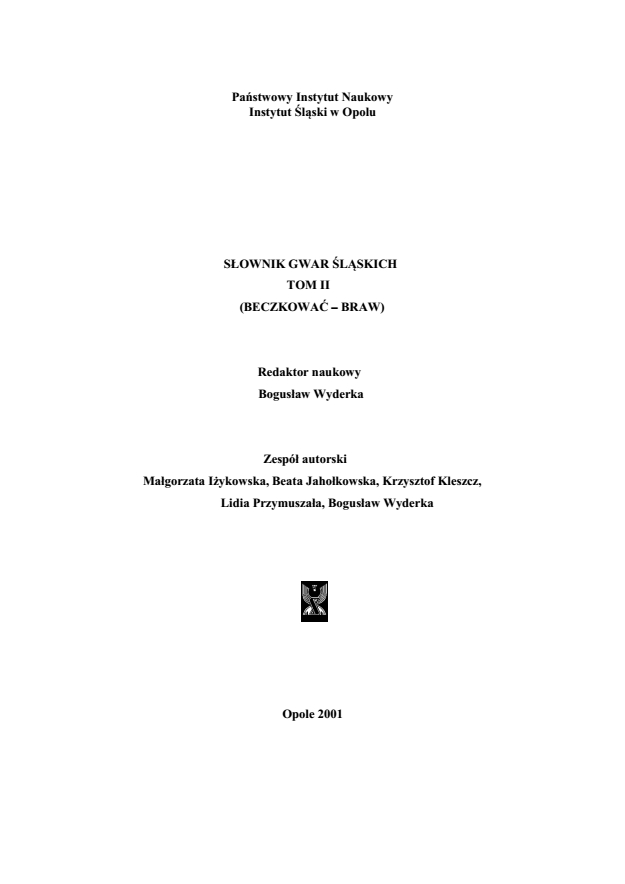
Słownik Gwar Śląskich, tom II (BECZKOWAĆ - BRAW)
"Glossary of Silesian Dialects" is the result of many years of scientific work of several generations of linguists from the Silesian Institute in Opole, Poland.
More...We kindly inform you that, as long as the subject affiliation of our 300.000+ articles is in progress, you might get unsufficient or no results on your third level or second level search. In this case, please broaden your search criteria.

"Glossary of Silesian Dialects" is the result of many years of scientific work of several generations of linguists from the Silesian Institute in Opole, Poland.
More...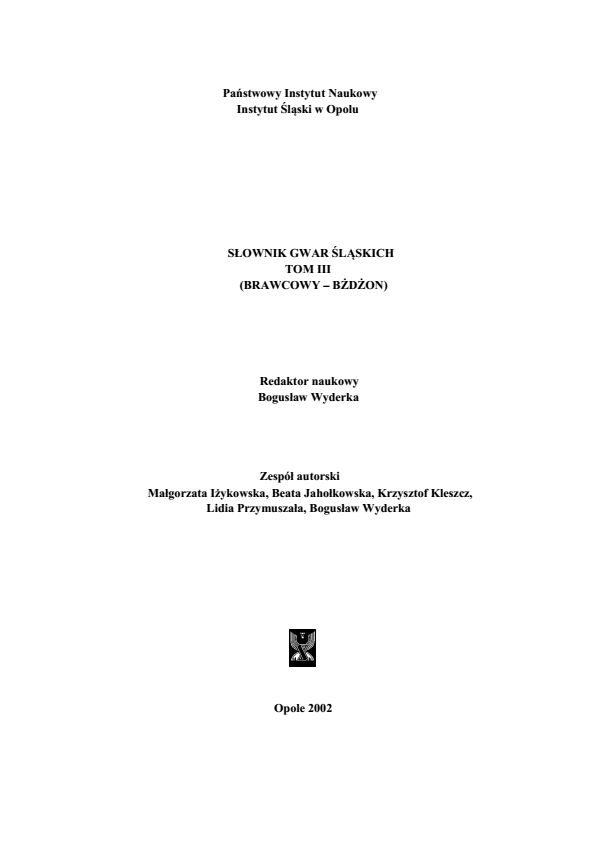
"Glossary of Silesian Dialects" is the result of many years of scientific work of several generations of linguists from the Silesian Institute in Opole, Poland.
More...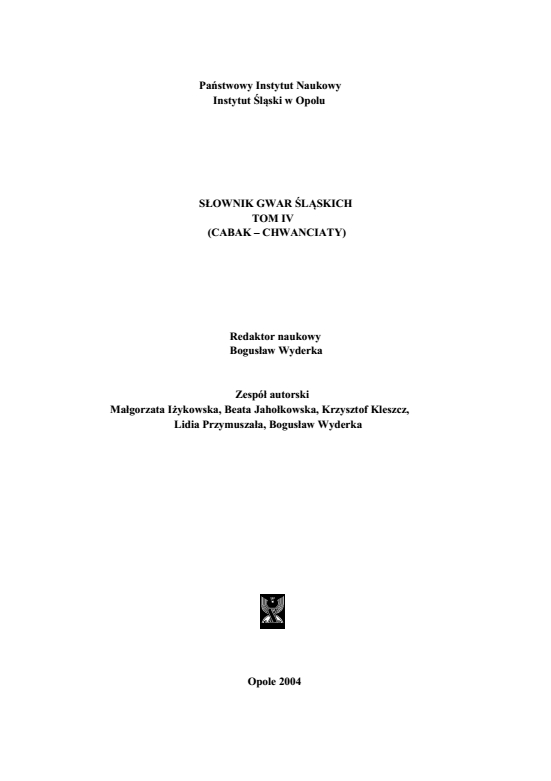
"Glossary of Silesian Dialects" is the result of many years of scientific work of several generations of linguists from the Silesian Institute in Opole, Poland.
More...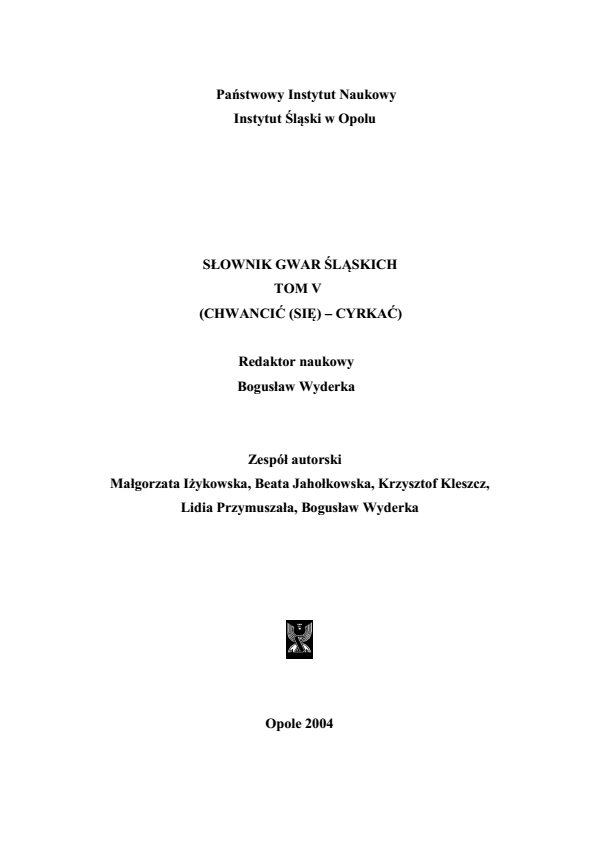
"Glossary of Silesian Dialects" is the result of many years of scientific work of several generations of linguists from the Silesian Institute in Opole, Poland.
More...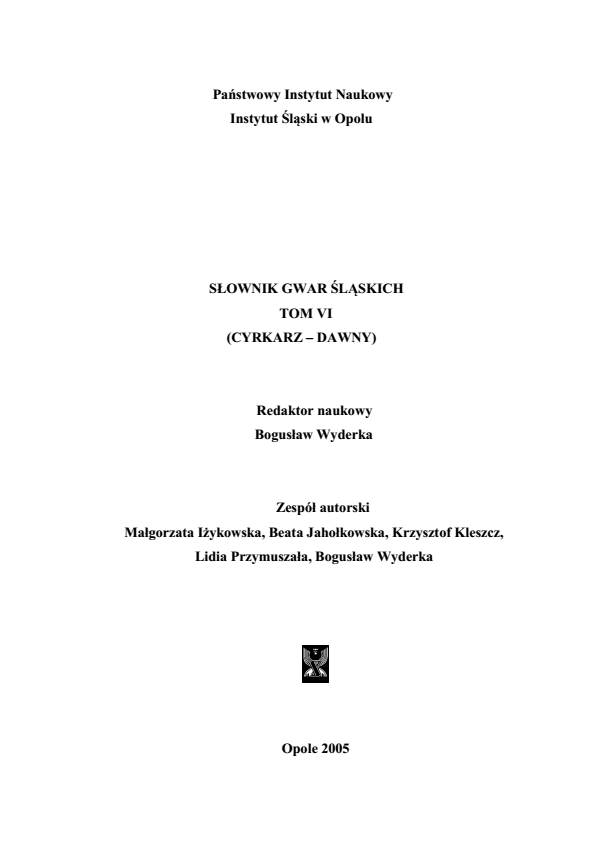
"Glossary of Silesian Dialects" is the result of many years of scientific work of several generations of linguists from the Silesian Institute in Opole, Poland.
More...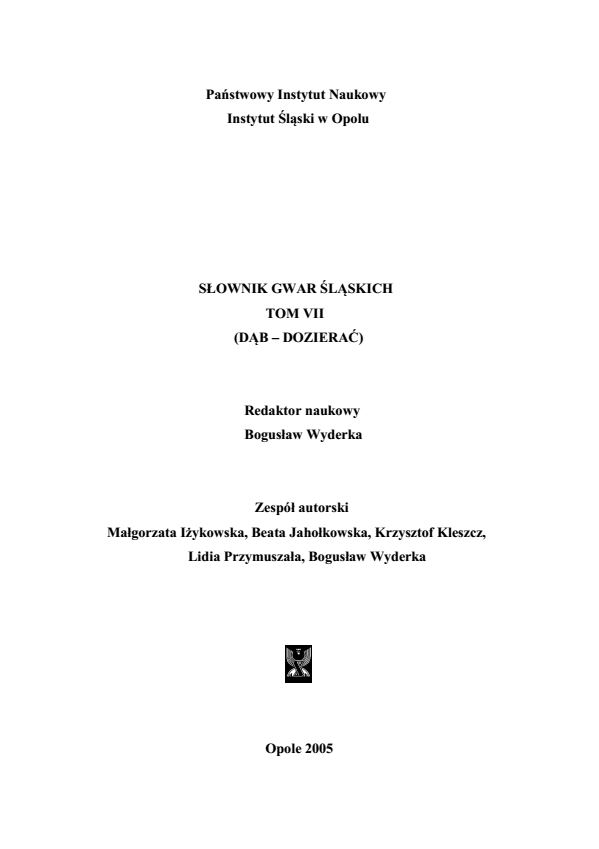
"Glossary of Silesian Dialects" is the result of many years of scientific work of several generations of linguists from the Silesian Institute in Opole, Poland.
More...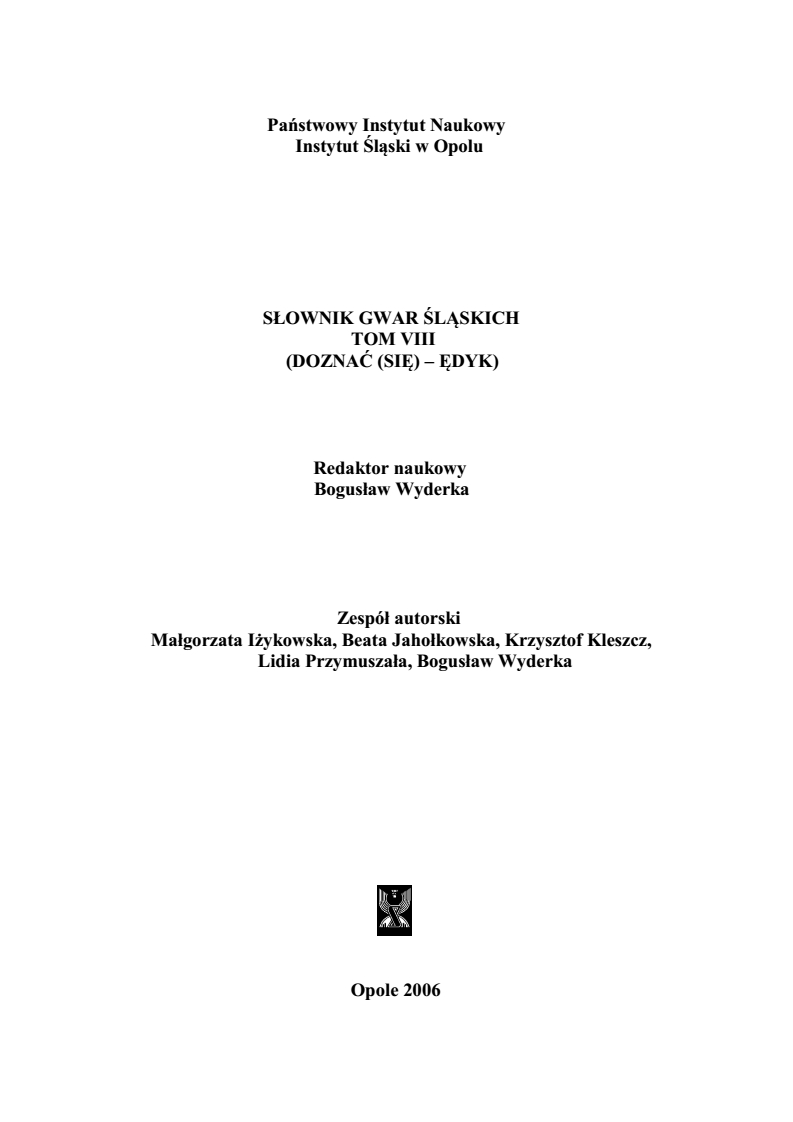
"Glossary of Silesian Dialects" is the result of many years of scientific work of several generations of linguists from the Silesian Institute in Opole, Poland.
More...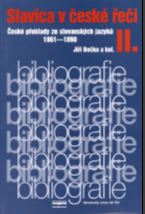
Cilem teto stati je nejprve charakterizovat podminky a historicke souvislosti, ve kterych dochazelo k formovani česke literatury a kultury jako celku od počatku 19. stoleti a jejimu rozvoji ve sledovanem obdobi 1861-1890, a poukazat na to, jak tento vyvoj ovlivňovaly postupně vzrůstajici kulturni styky s ostatnimi slovanskymi narody. Jejich dokladem je předkladany souhrnny přehled překladů z nejrůznějšich oblasti, zejmena však literarnich, ktere byly ve sledovanem obdobi vydany tiskem. Dalši kapitola uvadi vyběr hlavnich představitelů z velkeho počtu českych překladatelů všech profesi, kteři se překladatelske činnosti věnovali ve zmiňovanem obdobi. Posledni kapitola se zabyva historii vzniku bibliografie slavik jako zrcadloveho obrazu existence Slovanskeho ustavu.
More...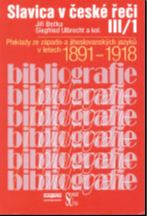
Předkladana publikace představuje zavěrečnou čast obsahle bibliografie, v niž se zrcadli zajem česke veřejnosti o Slovanstvo prostřednictvim prezentace v českem tisku i knižnich publikacich od nejstaršich dob až do konce prvni světove valky. Dosud byly v SLU vydany dva svazky - Slavica v česke řeči I. Česke překlady ze slovanskych jazyků do roku 1860 - a Slavica v česke řeči II. Česke překlady ze slovanskych jazyků 1861-1890 (vydano v r. 2002 na zakladě podpory Grantove agentury ČR, č. 405/00/1648). Oba svazky, zpracovane na zakladě rozsahle heuristicke prace, obsahuji kompletni bibliograficke zaznamy děl přeloženych ze slovanskych jazyků. Při připravě dalšiho časoveho useku 1891-1918 se ukazalo, že pro přiliš velky rozsah soustředěneho materialu nelze překlady ze všech slovanskych jazyků umistit do jednoho svazku, a to jak z důvodů technickych (počet stran konečneho dila), tak z důvodů časove naročnosti revize a uspořadam zaznamů. Bylo proto rozhodnuto rozdělit toto obdobi do dvou dilů, a to: Slavica III v česke řeči. Čast 1. Překlady ze zapado- a jihoslovanskych jazyků v letech 1891-1918 a Slavica III v česke řeči. Čast 2. Překlady z vychodoslovanskych jazyků v letech 1891-1918. Už jen předkladana prvni čast svym rozsahem převyšuje posledni vydany svazek - Slavica v česke řeči II. Česke překlady ze slovanskych jazyků 1861-1890. Aspekt rozsahu předkladaneho svazku je jednim z důvodů, proč jsme se v uvodu rozhodli omezit jen na zakladni sděleni a ve sve podstatě teze, komentujici připravu svazku a zakladni problemove okruhy jeho dalšiho teoretickeho zpracovani.
More...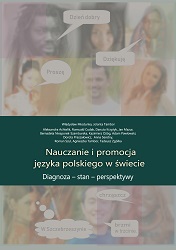
“The teaching and the promotion of the Polish language in the world. Assessment – status – perspectives” is an indispensable item in the library of teachers, lecturers, instructors, Polonia activists, promoters of cultural activities, journalists and diplomats – to put it briefly, all people who are concerned about the prestige, the fate and the status of the Polish language in the world and all people upon whom the fate and the status of the Polish language depends. The publication was developed by the following team of authors: Władysław Miodunka, Jolanta Tambor, Aleksandra Achtelik, Romuald Cudak, Danuta Krzyżyk, Jan Mazur, Bernadeta Niesporek-Szamburska, Kazimierz Ożóg, Adam Pawłowski, Dorota Praszałowicz, Anna Seretny, Roman Szul, Agnieszka Tambor, Tadeusz Zgółka (collaborators: Małgorzata Smereczniak, Karolina Graboń). The authors at the same time constitute a team of experts appointed by His Magnificence Rector of the University of Silesia on the basis of an agreement with the Ministry of Science and Higher Education in January 2017 in order to develop a strategy of the teaching and the promotion of the Polish language in the world which was supposed to involve the following items:• the teaching of the Polish language as a foreign language in all age groups, at all levels, both in the system of non-higher education and higher education and in all forms;• the promotion of the Polish language in the world, along with an indication of the priority geographical areas and the areas of substance, as well as the instruments of promotion;• the coordination of the activities and the establishment of the tasks of the particular institutions;• the indication of the scope of the necessary legislative modifications and the means of financing.The work on the strategy was completed in July 2017, the book is going to be released in July 2018. The chronological distance is slight but it is quite eventful. Above all in October 2017 one established the National Agency of Academic Exchange, an institution which took over the tasks of the Bureau for Academic Recognition and International Exchange, but also of a number of other sections, divisions and departments. Before the publication of the work the authors attempted to introduce the necessary changes, which take into account the new situation. However, this was not always possible.The authors assess the current status of the teaching and the promotion of the Polish language in the world and they put forward the best solutions to solve the problems, they suggest the best solutions possible. We realise that prompt realisation of some of the changes which are proposed is not possible, for it would require huge system-related modifications – however, these are maximum plans, which indicate the ills of the current state of affairs and the things which are relevant to teachers, students, parents of children of Polish origin and foreigners who learn Polish for a variety of reasons (e.g. migrants, refugees, as well as re-emigrants, who enter the Polish system of education), things which are also relevant to the enthusiasts of Polish literature, Polish theatre, Polish cinema, to people who stay abroad where access to the products of culture is sometimes considerably limited; to Polish tourists, travellers, passengers who are hard put to receive Polish announcements in airplanes, Polish-language customer service in trains or Polish notices in such airports. Fragments of this publication will be useful for students who major in foreign language pedagogy, for post-graduate students who train to become teachers of the Polish language as a foreign language. The work should be consulted by teachers, lecturers as well as students. Inspiration from this work ought to be drawn by people who are responsible to introduce certain changes, to make certain decisions and introduce some solutions which are put forward.The work describes the status at the turn of 2018 – the status which remains the same system-wise. It furnishes a basis for re-thinking, it indicates the things that may be fixed quickly and easily, and the things which require a greater deal of effort. We would like to indicate clearly – and this is very important – that the work also presents all of the accomplishments, triumphs and the strong points of Polish-as-a-foreign-language education and the promotion of Poland and the Polish language.
More...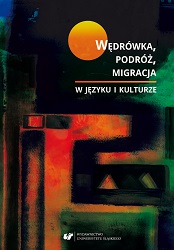
The nomadic character of contemporary culture (and not exclusively of it) is a fact that cannot be denied. People are wandering through life, but they are also moving in various other forms. Travelling in the geographical, mental and metaphorical sense ... determines the shape of our existence, invariably connected with different forms of movement. The complexity of this problem, its multifold nature and non-obviousness are confirmed by the authors of this monograph, who have chosen different versions of wandering, travelling and migration as the subject of description and interpretation. Not infrequently, which is worth emphasizing - the views are insightful, innovative and original. This approach to the topic of this volume should certainly be considered as its value. The collected texts have been grouped in seven thematic clusters. The first one (“Maps and boundaries”) comprises studies that address, from different perspectives, the issue of mapping of the world, as well as establishing boundaries, which are understood here in very different ways. The second part (“Facets of Wandering”) includes texts relating to wandering, both in a literal, as well as metaphorical or conventional sense. What is an important issue from the point of view of the problems of contemporary times is the issue of (e)migration, which the authors have also explored. This subject is dealt with in the third part named “(E)migrant and (e)migration”. The title concepts of the volume have become the object of scientific reflection as conceptualized in the system of Polish language and its textual realizations - this is reflected in the studies comprised in the fourth part (“Conceptualization of wandering, travelling, migration in a language and text”). The most comprehensive are studies dealing with travelling treated as a topic considered in various epochs, discourses and areas of communication. They have been placed in the fifth element (“Writing (about) travelling”). The presentation of other cultures, lands and languages, as well as emotional states of the authors is an important issue and thus frequently addressed in this volume, as evidenced by the sixth part entitled Conversation of „Absentees - travelling in a dialogue ». The volume has been ended with the element that comprises studies dealing with an issue that is important from the point of view of contemporary humanities, i.e. the wanderings of generic forms as well as the wandering that is taking place within them (“Wandering of species, wandering within the genre”). The book is addressed to Polish philologists, Slavists and humanists in general and to all those who are interested in travelling, wandering and migration.
More...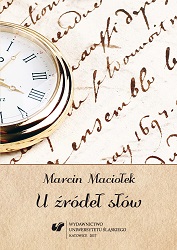
"The following work has primarily a didactic and popularizing character, although descriptions of different linguistic phenomena do not lack precision typical of strictly scholarly works; after all, meticulousness is a hallmark of philology. Also, I do not avoid the entirely new perspectives as far as the etymology or formal-semantic development of some of the analyzed lexemes is concerned. // I direct this book at both the foreign students of Polish and the Polish people sensitive to the beauty of their mother tongue – students of Polish philology and other humanities as well as mere enthusiasts of the Polish language. Since this study is addressed to a wide range of Readers, I decided not to use the methodological framework required of an academic text except for the bibliography of major publications (mainly dictionaries) used in the preparation of particular entries, which I provide at the end of the book.(from the “Introduction”)
More...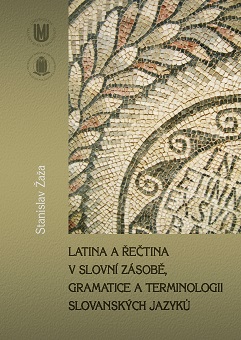
The book describes the results of influence of the ancient languages - Latin and Greek - upon the vocabulary, terminology, morphology, and syntax of various Slavic languages.
More...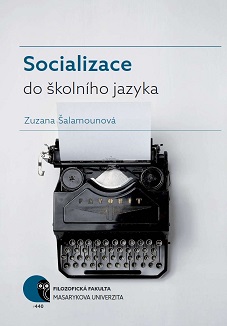
It could appear that people use the same language in school as they do everywhere else. Nonetheless, school language is so specific that it is often considered to be a foreign language. In fact, students begin to learn particular facts together with ways to talk about them as soon as they enter school. The sole purpose of this book is to examine this process which is typically called school-language socialization. The book, based on empirical research of classes of Czech language at lower secondary schools, describes how students learn to use language in a specific culturally determined way in conformity with the customary teaching activities of a given school subject.
More...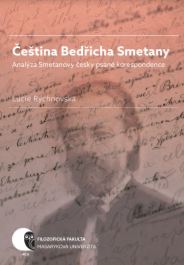
The monograph deals with the research of the composer Bedřich Smetana’s Czech. Smetana (1824–1884) lived in the period of time which is, in works on history of Czech language, referred to as revival or post-revival. From the linguistic perspective, this period is typical of replacement of German by Czech in the function of high communication variety and formation of modern standard language norm. The publication poses a question how contemporary speakers, who were educated but were not professionally involved in Czech language (as e. g. writers or journalists), mastered this norm. By the analysis of orthographical, grammatical and also complementarily of lexical aspects of Smetana’s correspondence, the monograph demonstrates how is Smetana’s expressing prototypical and in contrary extraordinary. The aim of the work is also to contribute to the knowledge of constitutive standard language of the second half of the 19th century.
More...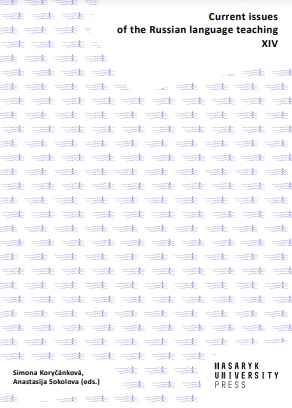
Collection of papers “Current issues of the Russian language teaching XIV” is devoted to issues of methodology of teaching Russian as a foreign language, to issues of linguistics and literary science and includes papers related to the use of online tools and resources in teaching Russian. This collection of papers is a result of the international scientific conference “Current issues of the Russian language teaching XIV”, which was scheduled for 8–10 May 2020, but due to the pandemic COVID-19 took place remotely.
More...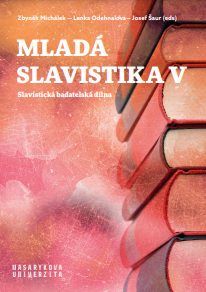
Young Slavistics V is the eighth consecutive volume in a series of annual publications by doctoral students from the Department of Slavonic Studies in Brno. There are eight studies by doctoral students in different Slavonic fields, in which the students focus on specific chosen topics of Slavonic literature, languages and cultures. Their writings are based on research done for dissertations currently being prepared. Therefore, the publication is a presentation of current research topics being addressed in Brno by young students of Slavonic Studies, and at the same time the texts indicate the trends in contemporary Slavonic research among this emerging generation of scholars.
More...
This collection presents the contributions of the students of Master’s and doctoral study programmes to the Student Scientific Conference held on 14/03/2019. Kateřina Žvaková deals with conversation analysis in Communication strategy tools used by the guests in GEN (documentary series), application of didactics is presented in Pavlína Zouharová’s Commercials in Czech Language Teaching of sixth-through-ninth graders in primary schools. Radim Ošmera focuses on the teaching of non-native Czech speakers in his Czech phonetics/phonology principles applied by non-native speakers of the Czech language, Veronika Tinková presents Worksheet design for Czech language for bilingual sixth-through-ninth graders and Věra Šimková presents Adapted reading exercises in the Czech-speaking environment. Miroslav Jindra deals with Methodology of research into children’s theatre audiences through a case study of a production of Vinnetou. The collection is concluded by literary scientific contributions from Kateřina Tesařová with her Death motifs found in the early poetic works of Jiří Karásek ze Lvovic and J.H. Krchovský and Ondřej Pechník’s Reflection of the Israeli-Palestinian conflict in Tomáš Kolský’s work.
More...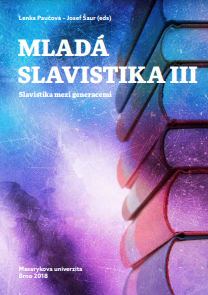
“Young Slavistics III” is the sixth consecutive publication in a series of annual publications of doctoral students from the Department of Slavonic Studies in Brno. The book was introduced by a study from Prof. Ivo Pospíšil called “Literary History as a Reflection of Memory and Value (with Regard to Slavonic Literatures)”. There are also ten studies by doctoral students of different Slavonic fields, in which the students focus on specific chosen topics of Slavonic literatures, languages and cultures. Their research is based on dissertations currently being prepared. Therefore, the publication is a presentation of current research topics solved in Brno by young students of Slavonic studies and at the same time they indicate the trends which this emerging generation of researchers brings to contemporary Slavonic research.
More...